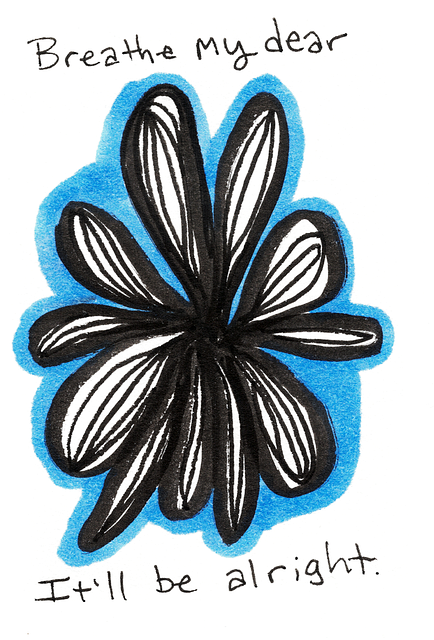Effective group facilitation in mental wellness settings, exemplified by Denver Alcohol Abuse Therapy, relies on understanding and managing complex dynamics. Key strategies include active participation encouragement, open communication promotion, power imbalance recognition, and structured activities. Techniques like active listening, reflective summarizing, and interactive elements create safe, supportive environments fostering trust, camaraderie, and emotional healing. These practices enhance self-awareness, belonging, and coping skills, empowering individuals to take charge of their mental health while cultivating resilient communities.
In the heart of Denver, Colorado, where mental wellness is increasingly prioritized, effective group facilitation techniques are vital tools in the fight against issues like alcohol abuse. This article explores the art of leading supportive groups, focusing on dynamic strategies for facilitators. From understanding intricate group dynamics to fostering safe spaces and encouraging emotional processing, these techniques enhance engagement and promote growth. Discover actionable guidance tailored to Denver Alcohol Abuse Therapy contexts, empowering facilitators to make a profound impact.
- Understanding Group Dynamics for Effective Facilitation
- Building a Safe and Supportive Environment
- Engaging Participants: Techniques to Foster Active Participation
- Guidance Through Emotional Processing and Sharing
- Strategies for Encouraging Accountability and Growth
Understanding Group Dynamics for Effective Facilitation

Understanding group dynamics is a cornerstone for effective facilitation, especially when addressing sensitive topics like mental wellness. In a group setting, each individual brings their unique experiences and perspectives, creating a complex yet powerful environment. As a facilitator, it’s crucial to recognize and navigate these dynamics to foster an inclusive and therapeutic atmosphere. This involves understanding power imbalances, encouraging active participation, and promoting open communication while ensuring everyone feels heard and respected.
In Denver Alcohol Abuse Therapy sessions, for instance, facilitators must be attuned to the group’s collective energy. Building a safe space where members can share their struggles openly requires careful management of dynamics. Techniques such as active listening, reflective summarizing, and structured activities help maintain balance. By addressing individual needs while keeping the group’s harmony in mind, facilitators can create an environment conducive to healing and self-improvement, enhancing the overall effectiveness of Trauma Support Services and Self-Esteem Improvement initiatives. Moreover, Healthcare Provider Cultural Competency Training can equip professionals with the skills to navigate diverse group compositions, ensuring every member feels valued and supported throughout the process.
Building a Safe and Supportive Environment

Creating a safe and supportive environment is a cornerstone of effective mental wellness group facilitation. In Denver Alcohol Abuse Therapy settings, establishing trust and fostering an inclusive atmosphere are paramount to encourage open communication and emotional vulnerability among group members. Techniques such as active listening, empathetic responses, and structured yet flexible group dynamics help participants feel heard, validated, and respected. This, in turn, strengthens peer connections, enhances self-awareness, and promotes a sense of belonging.
Incorporating coping skills development, trauma support services, and self-care practices within this safe space enables individuals to navigate their mental health journeys with greater resilience. By teaching practical tools for managing stress, processing traumatic experiences, and prioritizing personal well-being, facilitators empower group members to take ownership of their mental wellness. This holistic approach not only facilitates individual growth but also cultivates a supportive community where every voice is valued and every struggle is met with understanding and compassion.
Engaging Participants: Techniques to Foster Active Participation

Engaging participants actively is key to facilitating effective mental wellness groups. One powerful technique involves creating a safe and supportive environment where every individual feels heard and valued, mirroring the principles often seen in Denver Alcohol Abuse Therapy settings. Encouraging open dialogue through round-robin discussions or “think, pair, share” activities can spark meaningful conversations, fostering camaraderie among group members.
Additionally, incorporating interactive elements like role-playing scenarios or art therapy sessions not only breaks the monotony but also taps into various learning styles. These strategies enhance engagement by promoting active participation in emotional healing processes, aligning with best practices in risk management planning for mental health professionals. Effective communication strategies are at the core of these techniques, ensuring every voice is heard and contributing to a more dynamic and impactful group experience.
Guidance Through Emotional Processing and Sharing

Guiding individuals through emotional processing and sharing is a powerful technique in mental wellness group facilitation. As a facilitator, creating a safe and non-judgmental space is paramount. This encourages participants to explore and express their emotions openly, fostering a sense of vulnerability that’s essential for healing. By facilitating this process, facilitators help individuals understand and manage their feelings, which is crucial for stress management workshops within the organization.
In a group setting, sharing experiences and emotions can significantly enhance self-esteem improvement. Denver Alcohol Abuse Therapy, for instance, often benefits from these techniques as they promote collective support and empathy. Encouraging members to share their stories not only aids in emotional release but also educates others about various challenges, breaking down misconceptions and promoting understanding within the group. This collaborative approach is a game-changer in fostering mental wellness.
Strategies for Encouraging Accountability and Growth

In facilitating mental wellness groups, fostering accountability and growth among participants is paramount. One effective strategy involves incorporating Compassion Cultivation Practices. By creating a safe and supportive environment, group leaders can encourage members to share their experiences openly. Active listening and empathy from peers and facilitators help individuals feel understood, reducing self-blame and promoting personal responsibility for their mental health journey.
Additionally, Self-Care Routine Development for Better Mental Health is crucial. Facilitators can guide group members in identifying activities that nourish their minds and bodies. This may include mindfulness exercises, regular physical activity, or setting realistic goals. Integrating Mind Over Matter Principles can empower individuals to reframe negative thoughts and challenges as opportunities for growth. Through these practices, participants learn to approach obstacles with resilience and a sense of agency, ultimately enhancing their mental wellness outcomes, especially in contexts like Denver Alcohol Abuse Therapy.
Group facilitation plays a pivotal role in enhancing mental wellness, as evidenced by effective strategies like those seen in Denver Alcohol Abuse Therapy. By understanding group dynamics, creating safe spaces, engaging participants actively, guiding emotional processing, and fostering accountability, facilitators can revolutionize support systems. These techniques not only encourage personal growth but also build a supportive community, making therapy accessible and impactful for all.














